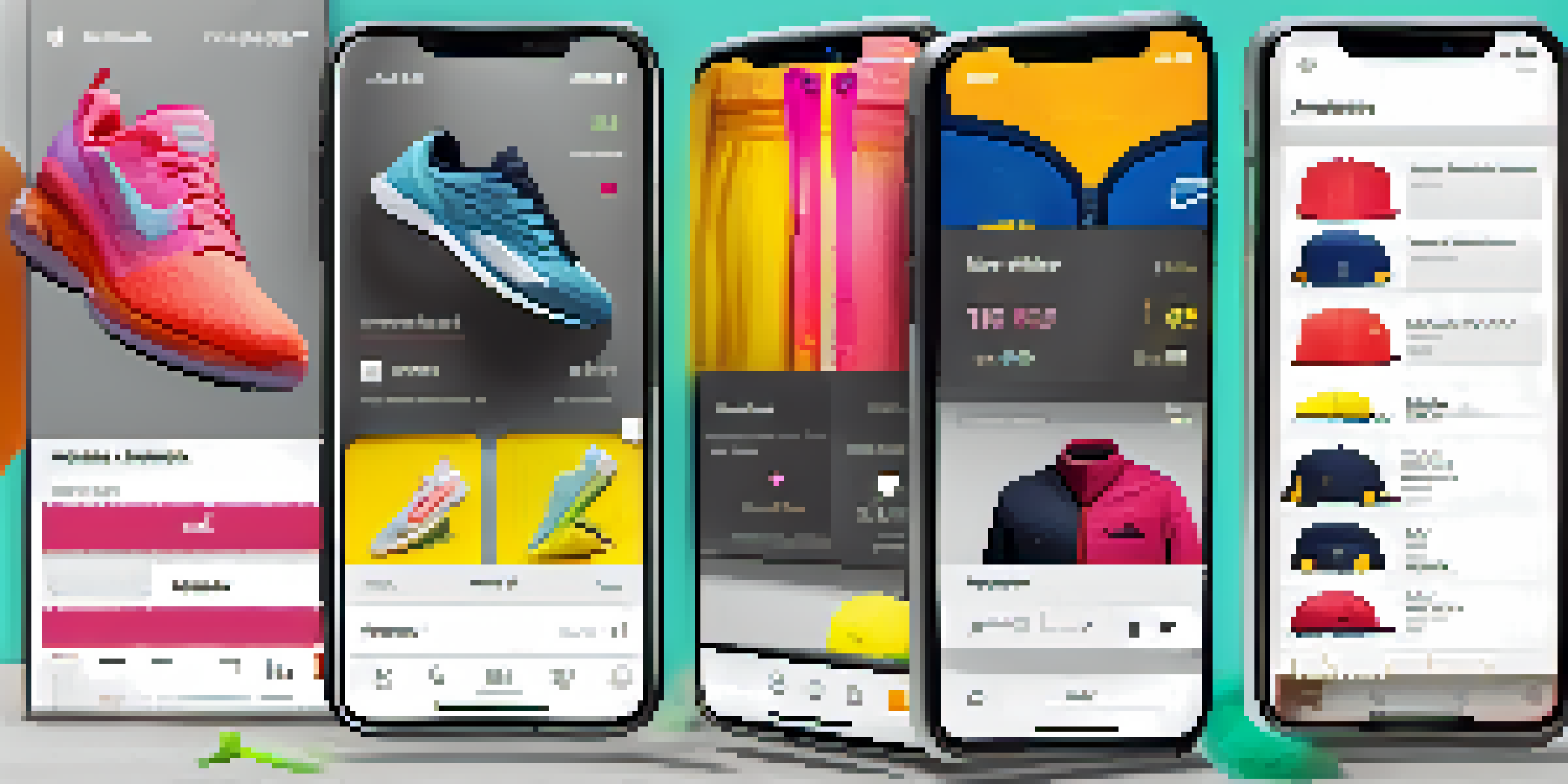Personalization in Mobile Commerce: Strategies for Success

Understanding the Importance of Personalization
In the world of mobile commerce, personalization is more than just a trend; it's a necessity. Consumers today expect tailored experiences that cater to their unique preferences and behaviors. When brands take the time to understand their customers, they create deeper connections that foster loyalty and drive sales.
In the age of information, personalization is not just an option; it’s a necessity. Brands that understand and meet the unique needs of their customers will thrive.
By analyzing user data, businesses can predict what customers want before they even know it themselves. For example, if a user frequently browses athletic wear, a personalized homepage featuring new arrivals in that category can lead to higher engagement. This proactive approach not only enhances user experience but also boosts conversion rates.
Ultimately, personalization can differentiate your brand in a crowded marketplace. As more businesses adopt generic marketing strategies, those that prioritize personalized experiences will stand out, creating a competitive edge that is hard to replicate.
Leveraging Data for Tailored Experiences
Data is the backbone of effective personalization strategies in mobile commerce. By collecting and analyzing customer data—such as browsing history, purchase behavior, and location—brands can create targeted marketing campaigns. This data-driven approach allows businesses to deliver content and products that resonate with individual users.

For instance, a mobile app that tracks user interactions can send personalized notifications about sales or new arrivals based on past purchases. This not only keeps customers informed but also encourages repeat visits. Think of it as having a personal shopper who knows your style and preferences, ready to offer suggestions just for you.
Personalization Drives Customer Loyalty
Tailored experiences based on customer data foster deeper connections and enhance engagement.
However, it's crucial to handle customer data responsibly. Transparency about data usage and obtaining consent are essential to maintaining trust. Customers are more likely to engage with brands that prioritize their privacy while providing personalized experiences.
Creating a Seamless User Experience
A seamless user experience is key to effective personalization in mobile commerce. The journey from browsing to purchasing should be smooth and intuitive, minimizing friction points that could deter potential buyers. This means optimizing your mobile app or website for easy navigation and quick loading times.
Data is the new oil, and those who can refine it into actionable insights will create the most value.
Consider incorporating features like one-click purchasing and personalized recommendations based on previous interactions. For example, if a customer often buys skincare products, showcasing complementary items on the checkout page can enhance their shopping experience. It’s like having a helpful assistant who knows exactly what you need.
Moreover, don't forget about mobile optimization. With more users shopping on their smartphones, ensuring your site is mobile-friendly will keep customers engaged. A responsive design that adapts to different screen sizes can significantly improve user satisfaction and encourage repeat visits.
Utilizing AI and Machine Learning for Personalization
Artificial Intelligence (AI) and Machine Learning (ML) are game changers in the realm of personalization. These technologies enable businesses to analyze vast amounts of data quickly and accurately, identifying patterns in customer behavior that can inform marketing strategies. With AI, brands can deliver hyper-personalized experiences at scale.
For example, AI algorithms can recommend products based on a user's past purchases, search queries, and even social media behavior. This level of personalization not only enhances the shopping experience but also increases the likelihood of conversion. It’s like having a personal assistant who understands your tastes and preferences perfectly.
AI Enhances Personalization Efforts
Utilizing AI and Machine Learning allows brands to deliver hyper-personalized experiences efficiently.
However, while AI and ML offer powerful tools for personalization, it's essential to maintain a human touch. Technology should enhance, not replace, the personal connections that customers value. Balancing automation with authentic engagement can lead to a truly memorable shopping experience.
Tailoring Marketing Strategies for Mobile Users
Marketing strategies for mobile users should be tailored to their unique habits and preferences. Mobile shoppers often exhibit different behaviors compared to desktop users, which means your marketing tactics need to reflect that. For instance, push notifications can be an effective way to reach customers directly on their devices, offering personalized deals or reminders.
Additionally, consider using social media platforms popular among your target audience to create engaging content. Sharing user-generated content or personalized marketing messages can foster community and encourage interaction. It’s like chatting with friends who share your interests, making the shopping experience more enjoyable.
Don’t overlook the importance of timing either. Analyzing when your customers are most active on their devices can help you send messages at the right moment. A well-timed offer can turn a casual browser into a loyal customer, making timing a crucial element of your mobile marketing strategy.
Implementing Feedback Loops for Continuous Improvement
Feedback loops are vital for refining personalization strategies in mobile commerce. Regularly collecting feedback from customers about their experiences can provide invaluable insights into what works and what doesn’t. This could be as simple as a quick survey after a purchase or monitoring customer interactions within your app.
By analyzing this feedback, businesses can make data-driven decisions to enhance their offerings. For instance, if customers frequently mention difficulty navigating your app, addressing those pain points can lead to improved satisfaction. It's like tuning a musical instrument; regular adjustments can lead to a more harmonious performance.
Feedback Fuels Continuous Improvement
Regularly collecting customer feedback helps refine personalization strategies and adapt to evolving preferences.
Continuous improvement is essential in the ever-evolving world of mobile commerce. As trends and consumer preferences shift, staying attuned to your audience’s needs ensures that your personalization strategies remain relevant and effective.
Measuring Success: Key Metrics to Monitor
To gauge the effectiveness of your personalization strategies, it's essential to track relevant metrics. Key performance indicators (KPIs) like conversion rates, customer retention, and average order value can provide insights into how well your efforts are resonating with users. Monitoring these metrics allows you to identify areas for improvement and celebrate successes.
For example, if you notice an increase in conversion rates following a personalized email campaign, it’s a sign that your approach is hitting the mark. Conversely, if engagement drops, it may be time to reassess your strategies. Think of these metrics as a compass guiding your personalization efforts in the right direction.

Moreover, consider segmenting your data to gain deeper insights into specific customer groups. This can help you tailor your strategies even further, ensuring that every segment of your audience feels valued. By regularly reviewing and adjusting your approach based on these metrics, you can continuously refine your personalization efforts for greater success.